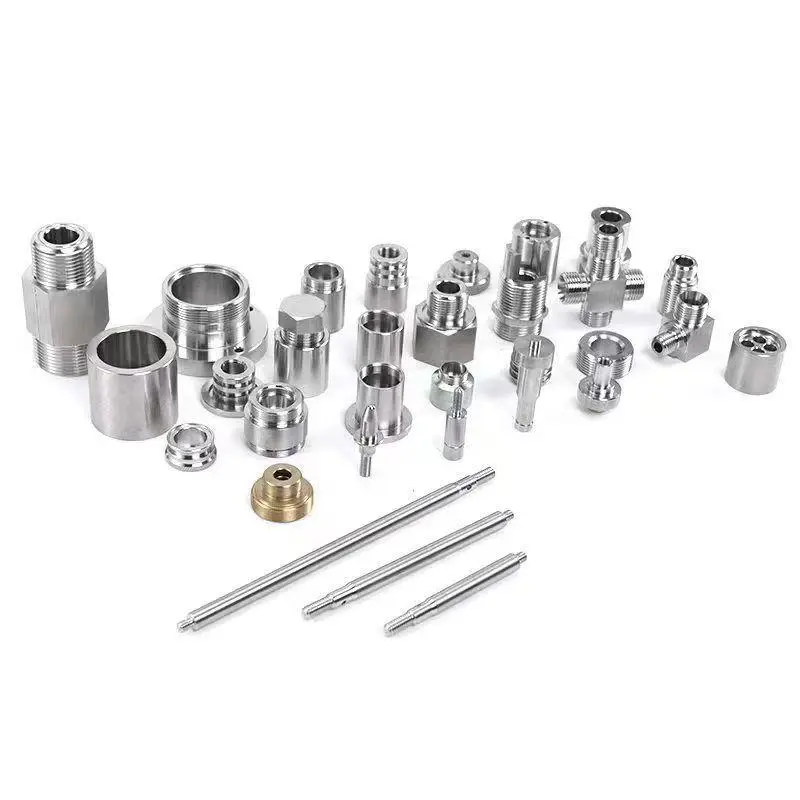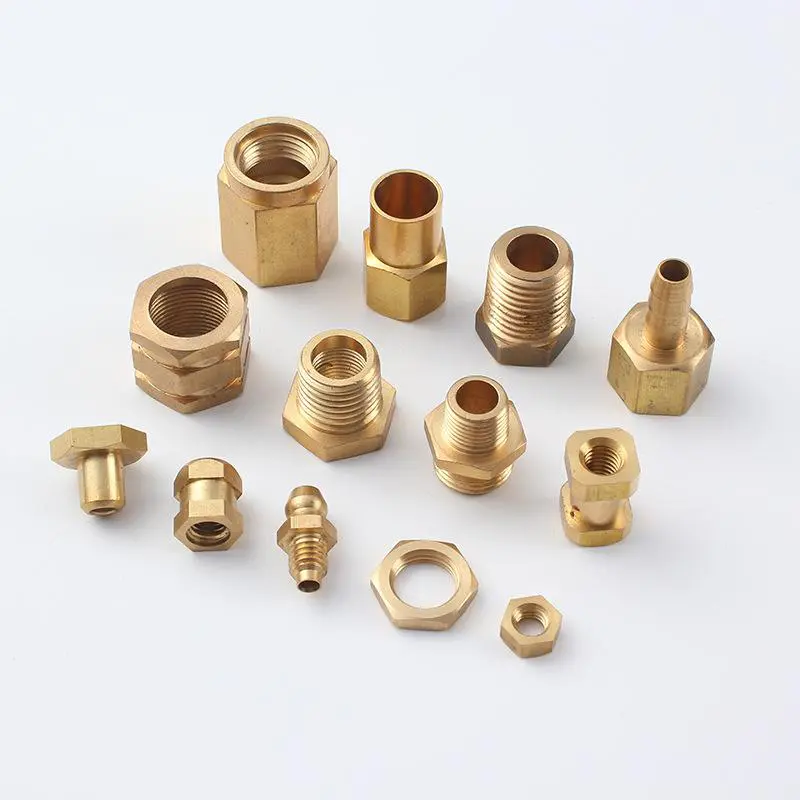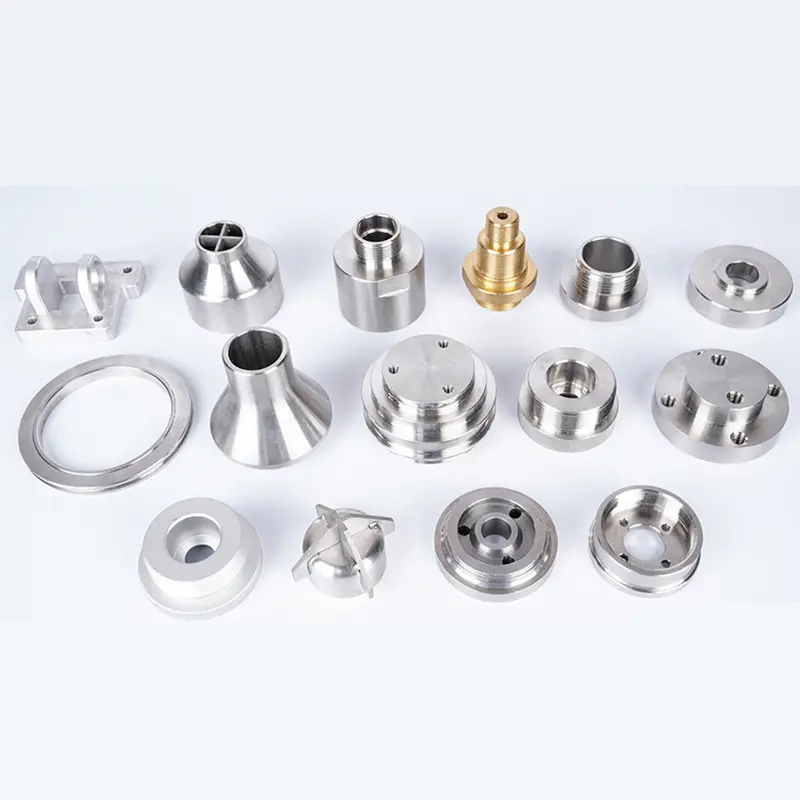Understanding Machined Parts: A Comprehensive Guide for Manufacturing and Precision Engineering
Published Time:
2025-09-12
Machined parts are integral to the manufacturing industry, particularly in mechanical and hardware processing. They refer to components that have been fabricated through machining, which is a process that involves the removal of material from a workpiece to achieve desired shapes and sizes. This can be accomplished using various methods such as turning, milling, drilling, and grinding. Understanding the fundamentals of machined parts is essential for professionals in the manufacturing sector, as they play a crucial role in the creation of high-precision components.
The machining process begins with selecting the appropriate raw material, which can range from metals like aluminum, steel, and titanium to plastics and composites. Each material has its own set of properties that can affect the machining process and the performance of the final parts. For example, metals may require different cutting speeds and tool materials compared to plastics, which could lead to variations in surface finish and dimensional accuracy.
One of the primary advantages of machined parts is their ability to achieve high precision and tight tolerances. This is particularly important in industries such as aerospace, automotive, and medical devices, where even the slightest deviation can lead to significant issues. Advanced machining techniques, including CNC (Computer Numerical Control) machining, have revolutionized the production of machined parts by allowing for automated, repeatable processes that minimize human error and enhance consistency.
Furthermore, machined parts can be designed to meet specific specifications and functional requirements. Engineers can create complex geometries and intricate designs that would be challenging or impossible to achieve through traditional manufacturing methods. The versatility in design allows manufacturers to produce custom parts tailored to unique applications, leading to increased efficiency and performance.
In addition to precision and customization, machined parts also contribute to overall cost-effectiveness in production. While the initial setup and tooling may require investment, the long-term benefits of reduced waste, improved quality control, and enhanced production speeds often outweigh these costs. Additionally, the durability and reliability of well-machined components can lead to lower maintenance costs and extended product lifespans.
In conclusion, understanding machined parts is vital for anyone involved in manufacturing and precision engineering. The ability to produce high-quality, customized components through advanced machining processes significantly impacts various industries. By embracing the latest technologies and materials, manufacturers can ensure their machined parts meet the ever-evolving demands of the market, ultimately leading to innovation and advancement within their fields.
The machining process begins with selecting the appropriate raw material, which can range from metals like aluminum, steel, and titanium to plastics and composites. Each material has its own set of properties that can affect the machining process and the performance of the final parts. For example, metals may require different cutting speeds and tool materials compared to plastics, which could lead to variations in surface finish and dimensional accuracy.
One of the primary advantages of machined parts is their ability to achieve high precision and tight tolerances. This is particularly important in industries such as aerospace, automotive, and medical devices, where even the slightest deviation can lead to significant issues. Advanced machining techniques, including CNC (Computer Numerical Control) machining, have revolutionized the production of machined parts by allowing for automated, repeatable processes that minimize human error and enhance consistency.
Furthermore, machined parts can be designed to meet specific specifications and functional requirements. Engineers can create complex geometries and intricate designs that would be challenging or impossible to achieve through traditional manufacturing methods. The versatility in design allows manufacturers to produce custom parts tailored to unique applications, leading to increased efficiency and performance.
In addition to precision and customization, machined parts also contribute to overall cost-effectiveness in production. While the initial setup and tooling may require investment, the long-term benefits of reduced waste, improved quality control, and enhanced production speeds often outweigh these costs. Additionally, the durability and reliability of well-machined components can lead to lower maintenance costs and extended product lifespans.
In conclusion, understanding machined parts is vital for anyone involved in manufacturing and precision engineering. The ability to produce high-quality, customized components through advanced machining processes significantly impacts various industries. By embracing the latest technologies and materials, manufacturers can ensure their machined parts meet the ever-evolving demands of the market, ultimately leading to innovation and advancement within their fields.
NewsCenter
Beijing Pafinal Precision Machinery Co., Ltd.
Email:sales@pafinal.com

Address: No. 239 Huanhe South Road, Tianjin Pilot Free Trade Zone (Airport Economic Zone), Tianjin
中企跨境-全域组件
制作前进入CSS配置样式
sales@pafinal.com:
Whatsapp:
在线客服添加返回顶部
图片alt标题设置: PAFINAL
表单验证提示文本: Content cannot be empty!
循环体没有内容时: Sorry,no matching items were found.
CSS / JS 文件放置地




 2025-09-12
2025-09-12


